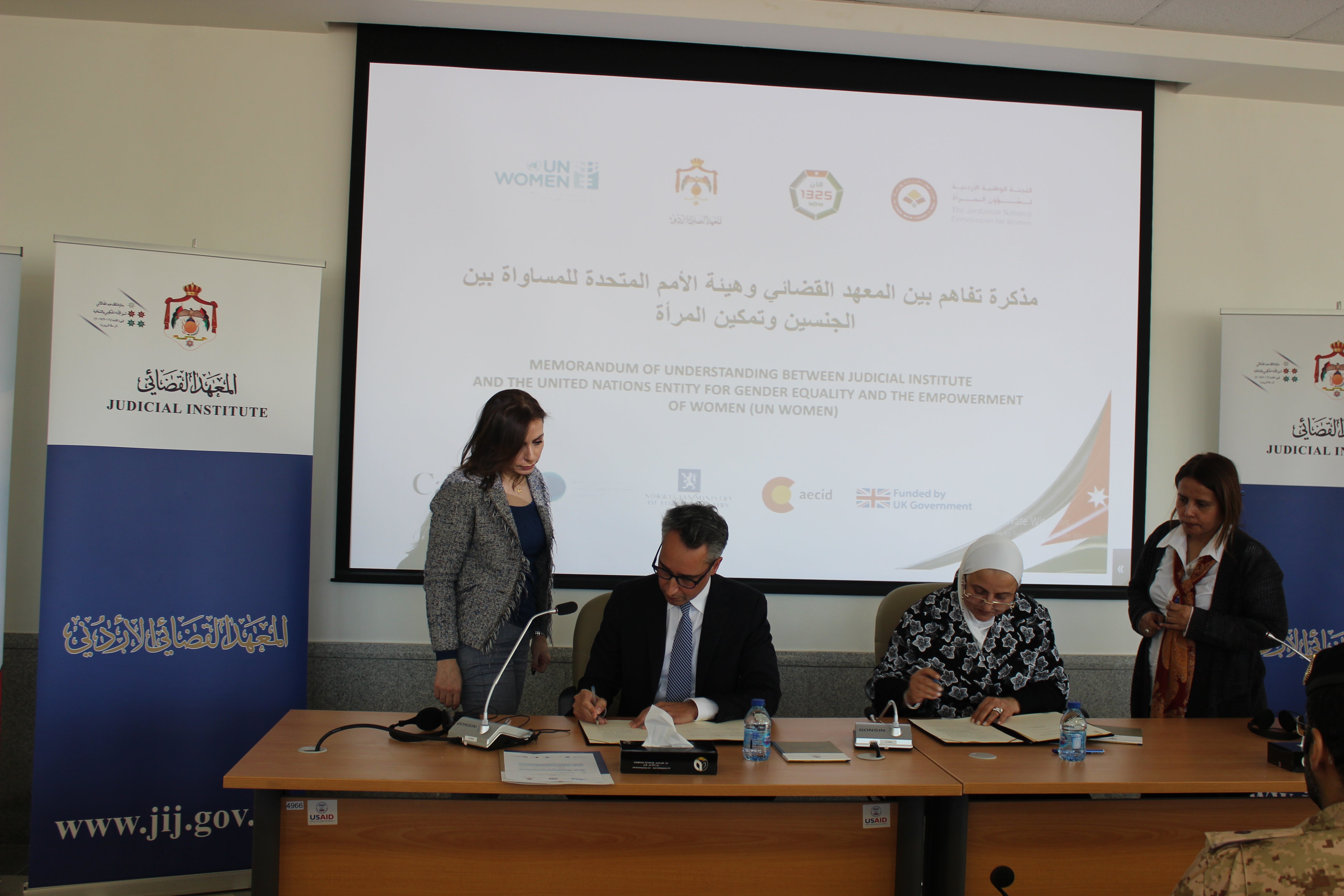Judicial Institute and UN Women sign Memorandum of Understanding
Date:

Within the framework of the Jordanian National Action Plan (JONAP) for the implementation of UN Security Council resolution 1325 on Women, Peace and Security (2018-2021), the General Director of the Judicial Institute in Jordan, Judge Ihssan Barakat and the UN Women Jordan Representative, Mr. Ziad Sheikh signed a Memorandum of Understanding to strengthen cooperation in the fields of empowering women judges, developing gender sensitive curricula, strengthening judges’ and court staff’s capacities in handling cases of gender-based violence and building personal skills of both males and females judges.
Under the Memorandum of Understanding, the UN Women will provide technical expertise and logistical support to the Judicial Institute, strengthening institutional capacities to provide gender-sensitive judicial services, and providing women with access to justice. This initiative is generously supported by the Governments of Canada, Finland, Norway, Spain and the United Kingdom.
“The action of a strengthened judiciary is key to promote access to justice for vulnerable women and girls. Through the Jordanian National Action Plan on UNSCR 1325 on Women, Peace and Security, UN Women and the Judicial Institute will enhance gender-responsive protection and legal services” affirmed Mr. Ziad Sheikh, UN Women Jordan Representative.
The Judicial Institute is the main institution responsible for preparing qualified candidates to assume judicial positions and any legal functions needed by ministries, government departments, official and public institutions. Its action also focus on raising the efficiency of judges, delegates of the Ministry of Justice and their employees through training courses held by the Jordan Judicial Institute and by developing their scientific research skills. The Institute also supports exchanging experiences and cooperating with similar institutes in Arab and foreign countries, encouraging cooperation with Arab and foreign judicial bodies.